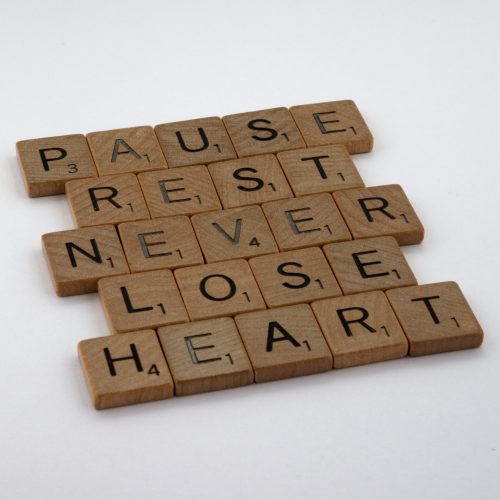In recent times there has been a lot of conversation around mental health. Where earlier it was a definite taboo, many people are now coming forward to share their stories of struggle with mental health. While there is still a long way to go, at least the door now is open.
Similarly, there is also a lot of awareness about medication and care for mental health patients. Doctors and experts are realizing that mental health issues are on the rise and are sharing their knowledge and tips on how to identify, treat and care for patients. Because of this, many do not require hospitalization but now can be taken care of at home.
However, even with all the awareness and support available, it is still not an easy job to be a caregiver for a loved one suffering from mental health issues. Because this is not usually short-term, caregivers who have been looking after loved ones for a long period of time (sometimes even years) start to feel disillusioned, depressed, or angry. There is confusion if we are doing the right thing, doubts if we are inadequate, and sometimes even guilt. There is definitely a lot of stress and one can often feel overwhelmed with all of it, sometimes even leading to burnout or breakdown.

A few years ago, my grandmom who was always sharp and alert suddenly had bouts of confusion and hallucinations. After being diagnosed with the onset of age-related dementia and a brief hospitalization, we now manage my grandmom at home with regular medications and doctor visits. This was actually my first direct and close brush with the mental health issue. I started reading up and learning more on this only after taking care of her as otherwise I had never directly been affected. While my parents are her primary caregivers, I also visit often & help look after her and accompany her for her doctor visits. My grandmom has always lived with my parents and has helped raise me; I think that bond we shared during my formative years helps me understand and connect with her. Our journey with caring for her at home and seeing my parents overwhelmed at certain times, helped me understand that it is important to also take care of ourselves if we need to avoid burnout.
How Do You Know That The Stress Is Affecting You
- – You feel overwhelmed or that things are spinning out of your control.
- – You get frequent headaches, body aches, or have tense muscles.
- – You feel low on energy, both physical and mental. This could be constant or in bouts.
- – You develop issues with digestion like Irritable Bowel Syndrome (IBS), constipation, nausea, etc.
- – You sleep too much or develop insomnia.
- – You have experienced unexplained weight loss or gain.
- – You get irritated easily and bicker over minor issues with family & friends.
- – In extreme cases, you start seeking solace in alcohol, drugs, or prescription medicine.

You may face a few or all of the above classic symptoms. It is important to first realize that you are in trouble and then consult your doctor for help with stress management. However, there are few things that you can practice to take care of yourself so that you are efficient as a caregiver.
Accept And Embrace
Knowledge is power. Read up about the mental issue to gain a better understanding of what are the challenges, why this may have occurred, what is the treatment prescribed etc. Speak to people who are caregivers, people who have recovered, experts & doctors. This will help you cope better and take informed decisions for your loved one.
Don’t Get Disheartened
Most times, the treatment and care will be for a long time, even years. Sometimes, there is no cure. Do not give up or beat yourself up if you don’t see an improvement. Follow what the doctor suggests. If in doubt about the effectiveness of the treatment, you can seek a second opinion from another doctor.
Don’t Make It Personal
Sometimes there could be harsh words spoken by your loved one. This may be because of frustration, the effect of the medication, or loss of mental faculties. Try to put yourself in their shoes and not take the arguments to heart. This one is easier said than done. Remember, you made the choice to care for your loved one. So try to focus on the positive aspects.
Know What You Can Control And What You Can’t
It is important to give your loved one some freedom and choice. Both of you will feel better. As a caregiver, it is easy for us to get carried away and set strict rules. But we should also know when to give in.
Free Yourself Of The Guilt
Understand and accept that you did not cause this. If hospitalization or stringent treatment is required, give whole-hearted cooperation. Do not feel guilty about asking for support to care if it becomes difficult for you to do it yourself.
Self-Care Is Necessary And Not An Indulgence
Some ‘me-time’ is important for you to get re-energized. Do something that brings you joy and helps you relax. This does not include household chores. Don’t worry about what others will say if you set aside time for yourself. Remember, only when you feel good and healthy can you do a good job of taking care of others.
Open Up
Talk to people. Talk about how you feel, your journey, your doubts, your fears, etc. Communication helps break barriers and sharing will help you heal & grow emotionally.
Exercise
It is important for us to get some form of exercise. This has a great impact on mental well-being. Get out for some fresh air and sunlight. Even a simple 30-minute walk will do. The change in scenario will also help you to refresh yourself.
Eat & Sleep Well
A hearty, well-balanced meal on time and catching proper sleep are very important for you to avoid burnout. An empty stomach and being groggy will only make you irritable and you will not be able to give your best.
Seek Support And Help
If you are feeling overwhelmed at any point in time, ask for help. This could be physical help like asking a relative to share your caregiver load for a few days or hiring help.
Correct Care & Treatment
Last but not the least. Do not attempt to diagnose and treat your loved one, yourself. It is important to seek the professional help of doctors and then you can follow their orders. Similarly, be alert to your own symptoms and seek help when needed.
It is good to care for your loved one. But always remember, it also equally important to care for yourself. Because, if you collapse there will either be nobody to care for you and your loved one or you may be putting additional pressure on your family.
This post is a part of Blogchatter Half Marathon.
This blog post is part of the blog challenge ‘Blogaberry Dazzle’ hosted by Cindy D’Silva and Noor Anand Chawla.




So true. We often ignore the burnout and emotional overwhelm experienced by the caregivers. This comes right in time.
It’s really nice that every aspect of mental health is in focus now. Definitely, caregivers need to be in focus and get the help they need too. A very good post highlighting and giving some solutions to overcome burnout.
Thank you for such a beautiful post .
This is such a thoughtful and well-written post, Vasumathi. That your suggestions and tips come from experience is very evident. Even Caregivers need attention.
Taking care of a person with any sort of mental illness is extremely difficult. The mental stress and strain the caregiver has to go through is very extreme. You have written a great article in this and I am glad you chose to write about the caregiver as even they are worthy the mention.
These are very effective ways. Many caregivers also feel guilty if they spend time on themselves rather than on their ill or elderly loved ones. Caregivers who are “burned out” may experience fatigue, stress, anxiety, and depression.
Very well written. Fully agree.
Vasu, I really liked the topic as I went nearly the same experience in the last year. My mom suffered from anxiety disorders and we struggled to bring her back to the stable condition. I hear you dear. Hope your grandmom is now well and happy. I wish you more power dear. Loved the post, you have written and presented so beautifully and pointed the main things so well.
Thank you Swarnali. Yes…my grandmom is much better now. She is 95 and it is her willpower that made it easy for us to bring her back and care for her. She is a strong lady and played a very crucial part in bring up my cousins and myself along with our parents. Hope your mother is well too now and continues to be stable. Take care of her and yourself too.
Yes, all these happen when you become too much stressed about something. The suggestions you’ve listed here are all perfect. Caregivers also need attention, embrace and support to overcome depression, anxiety or fatigue.
Such an important topic as everyone is talking about the sufferer but no one know what a caregiver goes through. And I loved all the suggestions as it is coming from your personal experience.
One of the best posts, I have read on caregivers. All the things you mentioned happens with the one who is staying, dealing and taking care of someone dealing with a kind of mental disorder. Plus the stigma, lack of awareness causes a lot of distress. Thanks for sharing your personal experience.
This is one important topic that is usually ignored. Thank you for highlighting the caregiver’s mental state. I have been through this and I understand what you are going through. You are doing a great job with yourself. I can feel the positivity Vasumathi. More power to you.
Glad this connected with you. Hugs to you as well.
You have brought such a nice topic in notice for mental health. Burned out caregivers cannot help out well and their health should be considered first.
Very well written and thoughtful post. Thanks for sharing.
Agree with you completely. The mental health of the caretaker is equally important.
If you are not happy, you cant keep anyone happy…selfcare is paramount…i loved how you have covered all the aspects…
The mental health of the caregivers is often ignored but it is an important topic to discuss and spread awareness. Knowing that certain things are not in control can give caregiver the peace and also help them cope up with their health. And asking for help is always good than self suffering for years.
I hear you, Vasu. I had been through this when my grandpa was suffering from dementia. Also, when my dad had a kidney transplant. So I am glad someone realized and penned the thoughts on caregiver burnout. Brilliant!
Thank you Archana. Glad this found a connection with you. Hugs to you!
You cannot pour from an empty cup,so take care of yourself first before you care others. Much needed tips vasumathy
A very important topic. Caregiving can be very stressful, particularly when the loved one is terminally ill. In our country, not much importance is given to the mental health of caregivers. And any self-care is considered selfish.
A very relevant post that I read today. Caregivers feel low at times and their health (physical as well as mental) may suffer. Though many things are not in our control, the pointers that you’ve discussed can be followed to some extent.
A caregiver’s mental health is often ignored. I am so glad you wrote about it. You are absolutely right, it is important to seek professional help and not self-treat or worse, brush it under the carpet. You cannot take care of someone unless you cannot take care of yourself first.
Such an insightful post I must say. I wish you more power. Loved the post, you have written so beautifully and pointed all the main things.
So very true Swarnali. I saw all these symptoms in my MIL when my FIL was bedridden. We tried to help her as much as possible during that time.
Sorry for the wrong name. I get confused with your and Swarnali’s blog titles.
Very well written Vasu. Taking care of mental health patient is sometimes overwhelming. Glad you shared such detailed signs and tips for caregivers.
self-care is necessary…everyone knows that but it’s not an indulgence that’s something that always gets missed out or more appropriately misinterpreted as wasting time and or money. A little me time is sometimes all you need to regroup and stay moving. All points have been captured brillantly
Such a heart warming post with so much of positivity. My nani suffered from varying degrees of dementia and old age related issues and it was heart breaking when she was stuck in another time zone….but my Dad being a psychiatrist helped. These are such important and oft ignored and forgotten points which you have brought out. Way to go for the strength you’ve derived by helping others become aware too.👍